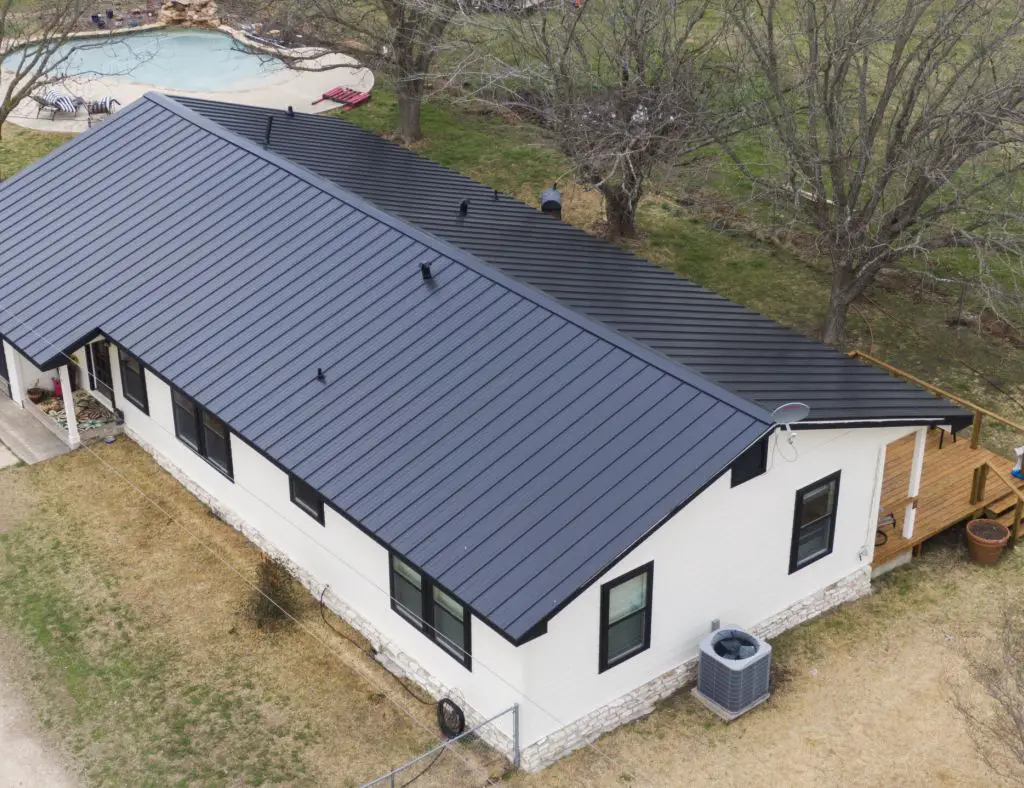Metal roofs have become increasingly popular due to their longevity and energy efficiency. But do insurance companies cover metal roofs? The short answer is yes, but it ultimately depends on the individual company’s policies and can vary by state.

Do Insurance Companies Cover Metal Roofs?
Yes, insurance companies cover metal roofs and usually imply that metal roofs have more extended durability. Most insurance companies accept coverage for metal roofs for up to 50 years.
Metal roofs are generally more expensive than roofing materials like asphalt or wood shake. Still, their long-term value can be higher due to their durability and lack of need for repairs over time. Metal roofs also tend to be more energy efficient, potentially leading to lower electricity bills in the long run.
There are several reasons why an insurance company might refuse to cover a metal roof, including:
- Age of the roof: If the metal roof is old and nearing the end of its lifespan, the insurance company may consider it a higher risk for damage or failure. In this case, they may refuse to cover the roof or offer coverage with higher premiums.
- Poor installation: If the metal roof was installed improperly, the insurance company might view it as a higher risk for leaks or other issues. In this case, they may refuse coverage or require the homeowner to make repairs before providing coverage.
- High-risk location: If the home is in an area prone to severe weather events, such as hurricanes, tornadoes, or hailstorms, the insurance company may view a metal roof as a higher risk for damage than other roofing materials. In this case, they may refuse to cover the metal roof or offer coverage with higher premiums.
- Unapproved modifications: If the homeowner has made modifications to the metal roof that are not approved by the manufacturer or violate local building codes, the insurance company may refuse to provide coverage for the roof.
It’s important to note that insurance companies may have specific policies or requirements regarding the types of roofs they will cover. Hence, homeowners must review their insurance policies and understand the coverage limitations and exclusions.
In most cases, major insurance companies will cover metal roofs with no issue. Some may require a higher deductible than they would for traditional materials like asphalt shingles—typically around $1,000—but that is usually the extent of any additional cost associated with insuring a metal roof. The important thing here is to read your policy thoroughly before signing to know what type of coverage you have and what conditions may apply.
It is also essential to remember that coverage may differ if your home is in an area susceptible to severe weather conditions like hurricanes or tornadoes. If this applies to you, be sure to check with your insurance provider before purchasing a metal roof, as certain regions may require additional protection from high winds or hail damage.
The key takeaway is that most major insurance companies provide coverage for metal roofing systems with no problem. However, it’s essential to read through the policy carefully to understand what types of coverage are included and any potential associated deductibles.
Additionally, suppose you live in an area prone to severe weather, such as hurricanes or tornadoes. In that case, it’s essential to check with your provider beforehand, as special provisions may need to be made for full coverage of the roof system. Metal roofing can be an excellent investment in your home, providing superior longevity, energy efficiency, and reliable protection from your insurance provider—making it easy for you to rest easy knowing that whatever happens, your roof will be covered!
